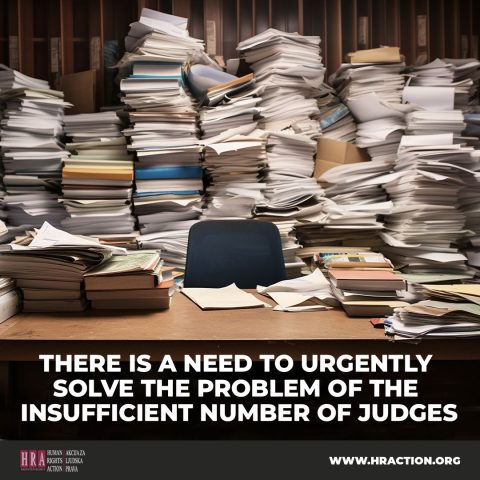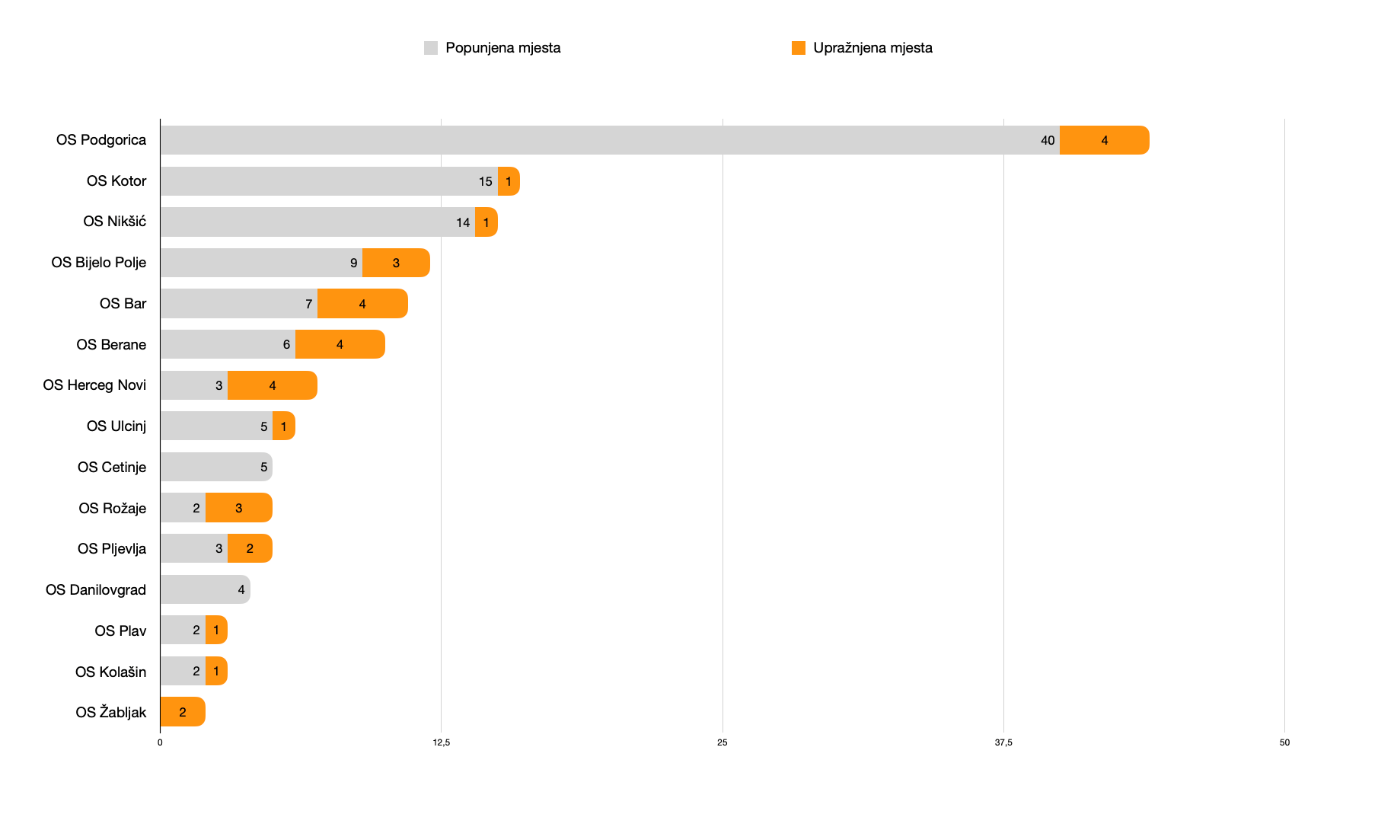
THE MARKO BOLJEVIĆ TORTURE TRIAL CONTINUES: WAS THE BLACK ‘OPEL ASTRA’ VEHICLE, USED BY THE DEFENDANTS, ASSIGNED TO MILOŠ VUČINIĆ?
11/10/2023
International Day for the Eradication of Poverty: Montenegro is not even close to fulfilling the 2014 recommendations of the UN Committee on Economic, Social and Cultural Rights aimed at combating poverty
17/10/2023THERE IS A NEED TO URGENTLY SOLVE THE PROBLEM OF THE INSUFFICIENT NUMBER OF JUDGES

The Human Rights Action (HRA) appealed to the Judicial Council today to urgently take additional measures to solve the problem of still-vacant judicial positions. We believe that the Council has so far not done everything in its power to resolve this issue.
There are as many as 31 vacant judicial positions in Montenegrin basic courts (21%), and the situation is influencing the promptness of their work – hearings are scheduled every four months, decision-making is late, and solving citizens’ urgent needs keeps being postponed indefinitely. The situation is worst in the Basic Court in Žabljak, which no longer has any judges.
Only the Basic Courts in Danilovgrad and Cetinje work at full capacity, while the courts in Herceg Novi and Rožaje are missing more than half the judges they need. Only the president and one judge still work in those courts. The Basic Courts in Bar, Berane, Herceg Novi and Podgorica are currently missing four judges each, while the courts in Bijelo Polje and Rožaje are missing three each.
After the office of the President of the Basic Court in Žabljak, Mihailo Andjelić, was terminated on Monday (for two years and two months, he was simultaneously the president of the court and the only judge working in it) because he met the requirements for old-age retirement, that court is now left without a single judge. Last year, Andjelić informed the Acting President of the Supreme Court, the President of the High Court in Bijelo Polje and the Judicial Council thereof, but did not receive any feedback instructions.
Efficient temporary solutions are necessary because:
- There are currently only 10 candidates attending the initial training for judges. They will not be able to assume the position of judge before March 2025 (with the exception of one person who might be able to start working at the end of January 2024);
- The Judicial Council failed to take timely measures to fill the judicial positions in the Basic Court in Žabljak;
- The Judicial Council failed to announce several internal competitions to fill vacant judicial positions in the northern region and to provide appropriate incentive measures for people to apply for those positions – at the last meeting, the Council made a decision to announce a public competition for the election of the President of the court in Žabljak, and an internal competition to fill one judicial position each in the courts in Herceg Novi, Nikšić, Ulcinj and Podgorica (four in total), despite the fact that there are 31 vacant judicial positions in the basic courts;
- The testing commission is slowing down the process of selecting candidates for judges by not scheduling testing for two, sometimes even three months after the deadline for applying to competitions.
On behalf of the citizens who pointed out the trial procrastination to us, the HRA appealed to the Judicial Council to take the initiative and hold discussions with court presidents in order to solve the problem in an efficient fashion. According to the Law on the Judicial Council and Judges, the Judicial Council can, with the judge’s consent, refer said judge to another court of the same or lower instance for one year if – among other things – there is a large number of pending cases that cannot be resolved by the existing number of judges, or if the regular performance of duties in the court to which a judge is to be referred is being called into question for other justified reasons. This sort of referral is made at the request of the president of the court that needs judges in order to be able to deal with the increased workload.
The HRA would like to stress that the promptness of the courts significantly deteriorated in the last year, i.e. that there was a large increase in the number of backlog cases that were transferred to this year (see: Analysis of the Application of the Law on Trials within a Reasonable Time, HRA, 2023); consequently, it is necessary to act urgently in order to reduce this problem as much as possible. As a long-term solution, it is necessary to change the law so that the lengthy 18-month training of candidates for judges can be significantly shortened and made more efficient.
Below is a table containing an overview of the number of filled judicial positions in the basic courts of Montenegro.






 English
English